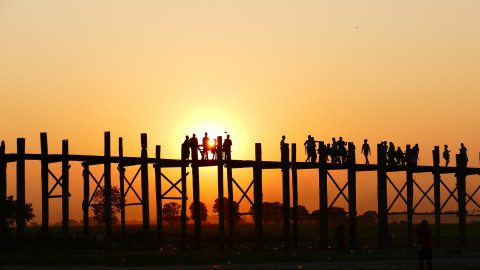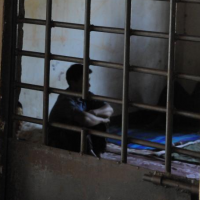“Disregard for human rights, dignity, democratic values and justice will hurt us to the core” Statements issued by Myanmar Civil Society Organizations

LoggaWiggler at Pixabay
The current COVID-19 pandemic has clearly demonstrated that national and territorial borders offer little protection – contrary to what the Myanmar Government may have initially believed when the corona virus first appeared in Wuhan, China some 2390 km away.
As the outbreak has unfolded across the globe, Myanmar authorities have persistently claimed to not have any cases of Covid-19 infection inside its borders. For as long as three months, they have watched and done nothing to prepare. For a country with the lowest ranked public health care system globally due to decades of underinvestment, neglect, and armed conflict, the current crisis - in terms of the magnitude of impact and the scale of interventions required – very likely poses the biggest challenge the country has ever faced. Any further missteps are likely to be even more costly in terms of human lives, and broader social, economic and political consequences.
It is crucial that the Government does not further marginalize the hundreds of thousands of people who are already living in very precarious situations and circumstances -- including internal displaced populations, stateless populations, migrant workers, workers who have lost their jobs due to the pandemic, prisoners of conscience, disabled persons, and the elderly -- in their responses to COVID-19. So far, the signs are not encouraging. While government efforts should have been concentrated on pandemic preparedness, militarization in the ethnic areas has continued relentlessly. In particular, fighting has escalated between the military and the Arakan Army in Rakhine and Chin states, leading to the displacement of tens of thousands more people. While many have already lost their lives in the conflict, including children and the elderly, those who survive have had to take shelter in the nearby towns under the makeshift flimsy camps, without any means whatsoever to take precautionary measures against the virus infection.
Hence, as this new layer of crisis unfolds on top of the already existing crises, Myanmar CSOs are joining together to point the way forward, issuing two statements consecutively. The first statement, issued on March 28, 2020 by 251 CSOs, calls on the Myanmar Government to respond to the emergency situation, building on the values of human rights, human dignity, democracy and justice. The second statement, issued on March 30, 2020, signed by 423 CSOs from across the ASEAN region, urges support for the UN Secretary General’s call for immediate unilateral ceasefire in all active armed conflicts as not only “a prudent step but a moral imperative”, while putting human security and social justice at the core of their response.
TNI stands in solidarity with civil society organizations in Myanmar amidst this crisis as they keep pushing for real social justice, which many of us believe to be the most effective long term vaccine needed to prevent future disasters or pandemics from recurring and to make possible the forging of a better trajectory for the country post-COVID-19.
